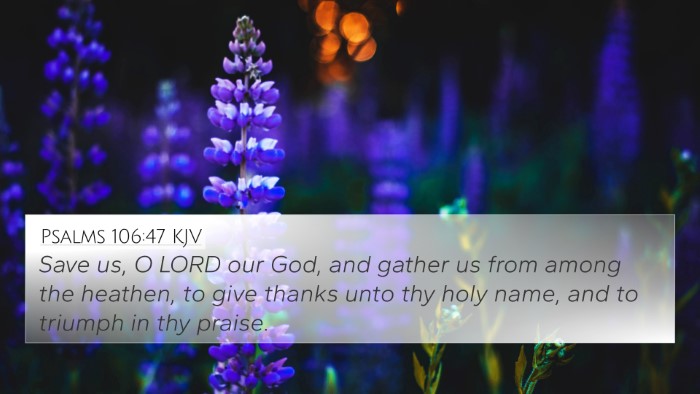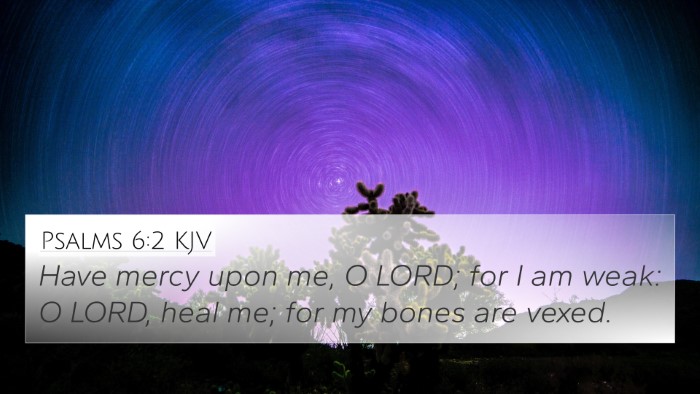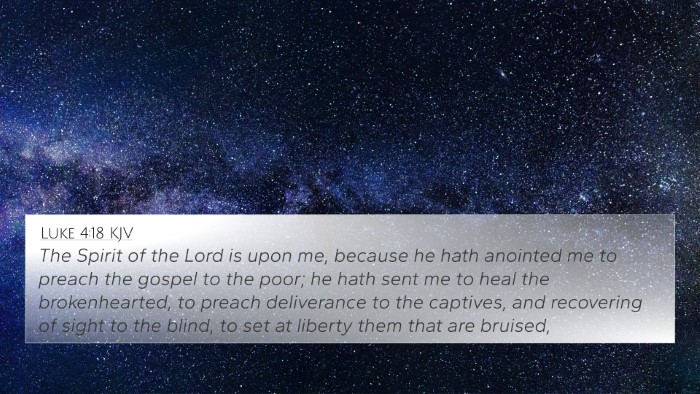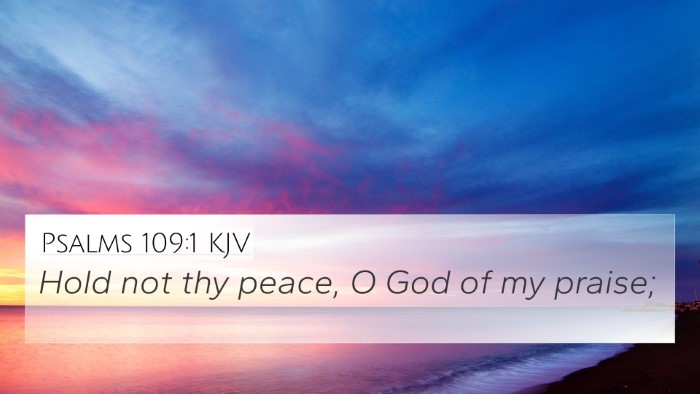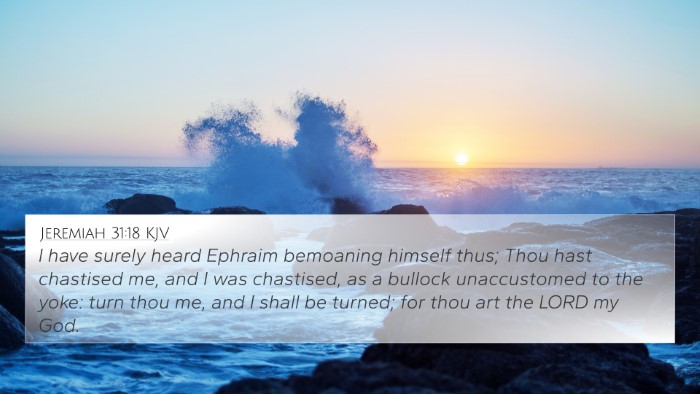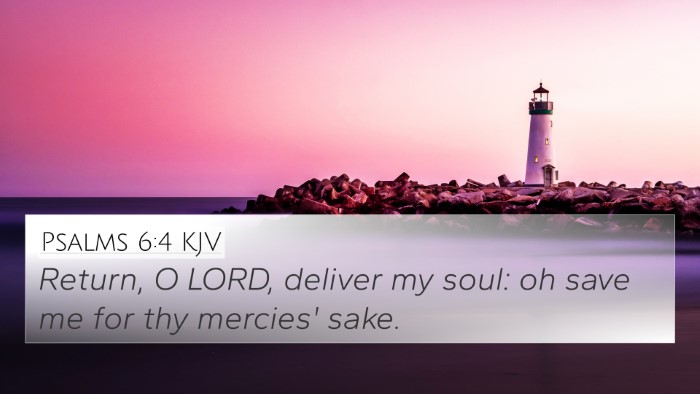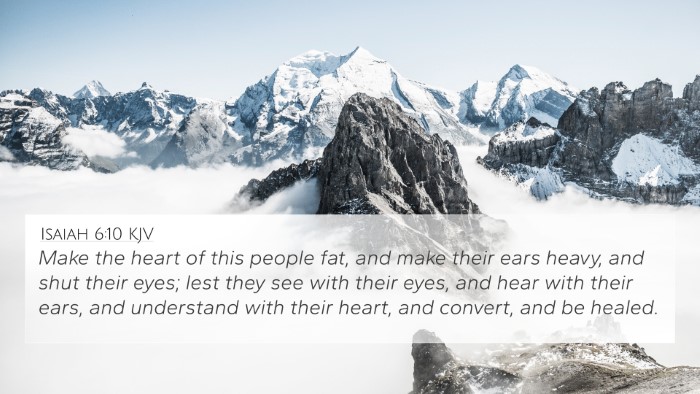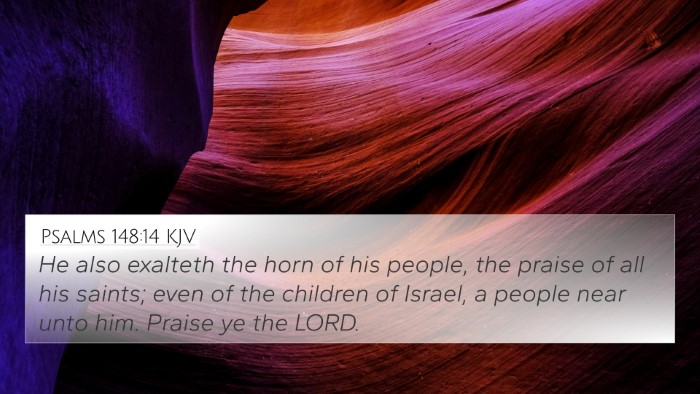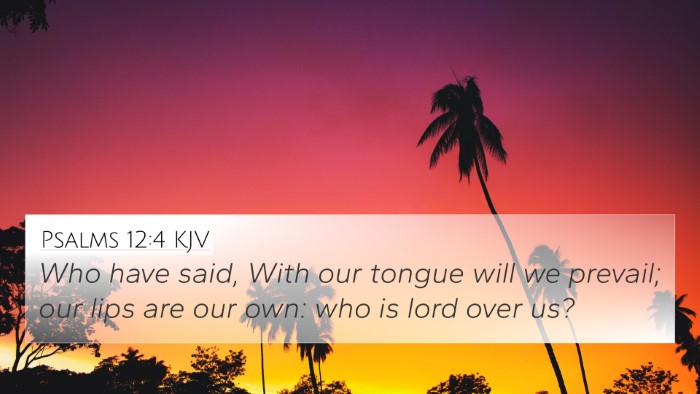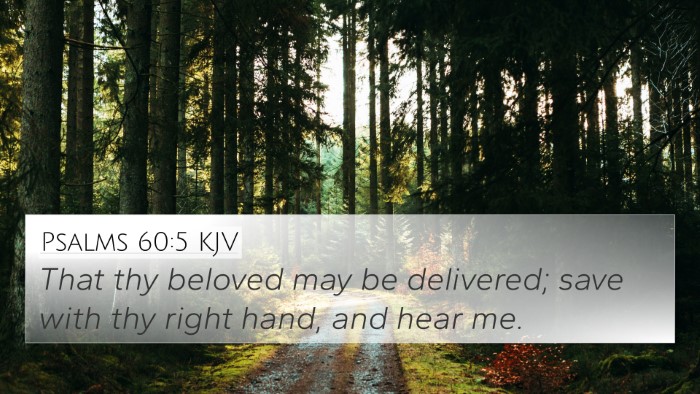Understanding Jeremiah 17:14
This verse, "Heal me, O Lord, and I shall be healed; save me, and I shall be saved: for thou art my praise," is a poignant plea for divine intervention and healing, resonating deeply with the human longing for restoration. In examining its context and meaning, we can draw upon insights from public domain commentaries by Matthew Henry, Albert Barnes, and Adam Clarke to enrich our understanding.
Verse Background
Jeremiah 17:14 appears within a larger narrative where the prophet Jeremiah expresses the plight of the people of Judah who are straying from the ways of God. This verse stands as both a personal petition and a communal acknowledgment of God's sovereignty and power to save.
Commentary Insights
Matthew Henry's Commentary
Matthew Henry emphasizes the centrality of God as the source of healing and salvation. He points out that Jeremiah's plea reflects a recognition of human inadequacy and the need for divine grace. Henry notes that true healing encompasses both physical and spiritual dimensions, highlighting the comprehensive nature of God's intervention.
Albert Barnes' Notes
Albert Barnes elaborates on the phrase "thou art my praise," suggesting that true worship arises from recognizing God's power in one's life. He interprets “heal” and “save” as more than mere physical restoration; they encompass emotional and spiritual renewal. Barnes encourages readers to see this verse as an affirmation of faith in God's ability to redeem.
Adam Clarke's Commentary
Adam Clarke focuses on the importance of the relationship between the believer and God, describing this verse as an expression of dependence on divine aid. Clarke indicates that the urgency in Jeremiah's request reflects the dire circumstances faced by the people, making the cry for healing particularly relatable during times of distress.
Thematic Connections in Scripture
Jeremiah 17:14 resonates with several other passages that echo themes of healing and divine salvation. Below, we present key cross-references that enrich this verse's context:
- Psalm 30:2 - "O Lord my God, I cried unto thee, and thou hast healed me."
- Isaiah 53:5 - "But he was wounded for our transgressions, he was bruised for our iniquities: the chastisement of our peace was upon him; and with his stripes we are healed."
- James 5:15 - "And the prayer of faith shall save the sick, and the Lord shall raise him up; and if he have committed sins, they shall be forgiven."
- Matthew 9:22 - "But Jesus turned him about, and when he saw her, he said, Daughter, be of good comfort; thy faith hath made thee whole."
- Luke 8:50 - "But when Jesus heard it, he answered him, saying, Fear not: believe only, and she shall be made whole."
- Romans 10:13 - "For whosoever shall call upon the name of the Lord shall be saved."
- 2 Chronicles 7:14 - "If my people, which are called by my name, shall humble themselves, and pray, and seek my face, and turn from their wicked ways; then will I hear from heaven, and will forgive their sin, and will heal their land."
Connecting Themes
The themes encapsulated in Jeremiah 17:14 invite us to reflect on the significance of healing and salvation found throughout Scripture. Linking Bible scriptures through cross-referencing facilitates a deeper comprehension of these interconnected ideas:
- Healing of the Body and Soul - The Bible frequently links physical healing with spiritual restoration.
- Faith and Prayer - Many verses emphasize the role of faith in receiving healing and salvation, which is illustrated in Jeremiah's heartfelt cry.
- Divine Sovereignty - The acknowledgment of God's ultimate authority over life situations is a common thread that runs through these verses.
- Community and Individual Need - While Jeremiah speaks as an individual, his needs reflect collective struggles, underscoring the importance of recognizing community vulnerability.
Tools for Bible Cross-Referencing
To fully explore the connections between Bible verses, several resources can enhance your study experience:
- Bible Concordance - Useful for locating verses by specific words.
- Bible Cross-Reference Guide - Helps navigate related scriptures across both testaments.
- Cross-Reference Bible Study - This method encourages the comparative analysis of scriptures.
- Bible Chain References - This technique links passages thematically for more profound insights.
- Comprehensive Bible Cross-Reference Materials - Thorough databases are available for in-depth study.
Conclusion
Jeremiah 17:14 serves as a vital reminder of the need for divine intervention in our lives. Through cross-referencing related scriptures, believers can cultivate a richer understanding of God’s promises of healing and salvation. Engaging in detailed cross-referencing unearths a tapestry of Biblical truth, affirming both personal faith and collective supplication.



